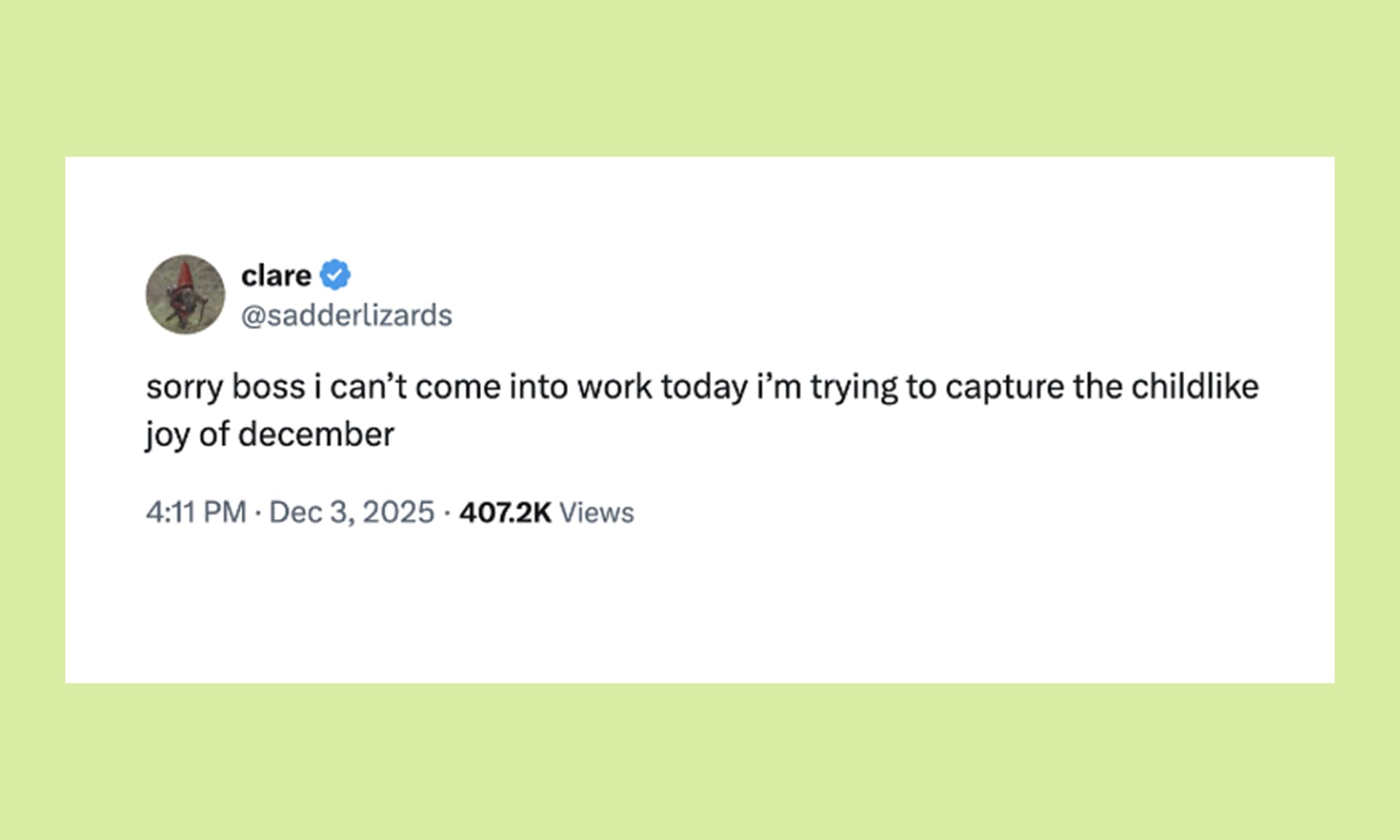What's Happening

Tech
A Digital Buzzkill for Australian Kids
What’s going on: The days of Snapchat streaks, fun TikToks, or IG story updates are officially over for many young Aussies. In case your feed missed it, Australia just enacted the world’s first social media ban for children under 16 years old. Ten platforms, including Facebook, Reddit, and YouTube, are officially “down under” in a whole different sense. Companies that break the law face an equivalent fine of up to $32 million, so most have already deactivated young users’ accounts and are cracking down on those who might’ve lied about their age. Australian lawmakers admitted the law isn’t perfect, but they said it’s a start. Surprise: Most kids don’t agree with the adults on this one — some have even taken the issue to court.
What it means: Countries around the world are watching to see if Australia just kicked off a new kind of social media trend — including here in the US. There’s an appetite for it: Nearly six in 10 US voters in a late-2024 Quinnipiac poll said they’d support similar age restrictions. And while Maryland’s “Kids Code” law is tied up in court, California did pass a child-safety bill that’s set to take effect in 2027. But if you’re trying to manage your kid’s screen time now, a ban won’t magically do it. Kids could hop on whatever platform isn’t restricted, and strict laws can push teens towards sketchier corners of the internet. So, think practical, not punitive: A phone curfew, clear time limits, and real conversations about digital literacy can go a long way.
Related: A Social Media Detox Really Does Help. This Is How To Do It (NPR)
The News In 5
🗞️ President Donald Trump says European countries are “decaying” in a new interview, but two leaders did earn his praise.
🗞️ These Epstein-related files are set to be released by Dec 19 after a federal judge’s ruling.
🗞️ The CDC’s annual abortion report, which gives an overview of US abortion access, has been pushed back amid agency chaos.
🗞️ Miami just elected its first woman mayor and sent the GOP a major message.
🗞️ The FDA is now reviewing two RSV drugs for infants despite no reported safety issues.
Tech
Why Your Friend Paid Less for the Same Yogurt
What's going on: The cart starts off simple — a refill here, a dinner ingredient there — but somehow the final total still feels like a splurge. And if it seems like prices shift for no reason, you may not be imagining it. A new study from Consumer Reports found that some Instacart shoppers who ordered the same item, from the same store, at the same time were still charged different amounts. Nearly three-quarters of products tested showed multiple prices — and some swung by nearly 25%, according to the report. Instacart’s response? Stores set their own prices, and some run tests to figure out “what matters most to consumers and how to keep essential items affordable,” which is a funny way of saying the amount you see might just be part of an experiment. Target, one retailer flagged in the report, said it isn’t affiliated with Instacart or responsible for prices on the platform.
What it means: “Dynamic pricing” can feel like playing “blueberry price roulette” — where algorithms adjust costs in real time based on your behavior, location, and demand. What started in air travel and rideshares has crept into grocery aisles. Certain stores now have digital shelf tags that could enable quicker price changes. Some experts say this might eventually lead to lower costs (we’ll wait for a receipt to prove it). Until then, we’ve scoured for tips to level the field: If you shop online, clear your cache, turn off your location, and skip the store’s app if you can — those “rewards” often cost you in data. Shopping in person? If you don’t need the travel points, pay with cash. It really shouldn’t take a strategy to get a fair price on fruit.
Related: Amazon’s AI Doorbell Update Means It Can Recognize Your Neighbors (TechCrunch)
Tech
When Toilet Trouble Is Just the Beginning…
What's going on: If, for some strange reason, you or someone you love has decided to buy a special toilet camera to immortalize your excrement, we have bad news. Kohler — the main brand selling such frivolous technology — initially claimed that their users’ photos would be safe from the world’s view (more a favor to the world than to the poopers, if you ask us), all thanks to end-to-end encryption. But TechCrunch reports that, actually, no. Kohler encrypts your data, but because it decrypts it on its own servers, the company can still access — and potentially use — your images, including to possibly train AI. That means your stool pics aren’t as safe as you might have thought. Pooh.
What it means: This news comes as people seem more on edge than ever about what their bodies are doing (see: unwarranted concerns about worms). We track our periods, steps, sleep, and more with every gadget imaginable. And this encryption news begs the question: Have we gone too far in monitoring our bodies while giving privacy almost no thought? Many experts say yes, and all this tracking can harm mental health. Keeping tabs on your health can be useful, but there are ways to do it more thoughtfully. For starters, check out these guides on locking down your health and fitness data and feeling less anxious about wearable data. If you find yourself obsessed or unable to sleep without closing your rings — to the point you’re using your living room as a mini track at 11 pm, for example — maybe take a break.
Related: Dr. Oz Wants To Pay for Your Wearables (Politico)
On Our Calendar
A few things to jot down today…
🗓️ The Federal Reserve will announce if it’s cutting interest rates.
🗓️ Major League Baseball holds its Winter draft. May your team find an early prospect and not trade them too soon.
🗓️ Taylor Swift will be on TV just before Midnight(s) and the promo shows a giddy Stephen Colbert.
Psst…For more dates worth knowing this week, check out the Skimm+ calendar.
TOGETHER WITH CAPITAL ONE VENTURE X BUSINESS
Business Class
How many small businesses in the US are run by just one person?
Take a guess.
Whether they’re running a team of 20 or flying solo, small business owners wear many hats — from marketing to payroll and every other task in between. The Capital One Venture X Business card gets it. Running a business can be complicated, but earning rewards shouldn’t be. That’s why it offers simple, high-value rewards that help your business go even further — no extra legwork required.
Know It All

There are a lot of odd-sounding things that keep those freakish zero-sugar Oreos sweet. Which ingredient isn't in them?
Extra Credit
Save
Looking for an upgrade for you and the family this holiday season? Verizon has you covered. Switch to Verizon and get four lines on Unlimited Welcome for $25 per line/month (with Auto Pay, plus taxes and fees). Plus, a brand new Apple iPhone 17 Pro, Samsung Galaxy S25+, or Google Pixel 10 Pro XL all on Verizon. No trade-in required. Learn more about our latest phone deals.*
For more recs...
Check out the Daily Skimm Weekend newsletter, in your inbox every Saturday and Sunday. We'll help you spend your leisure time well.
Live Smarter
Sign up for the Daily Skimm email newsletter. Delivered to your inbox every morning and prepares you for your day in minutes.



